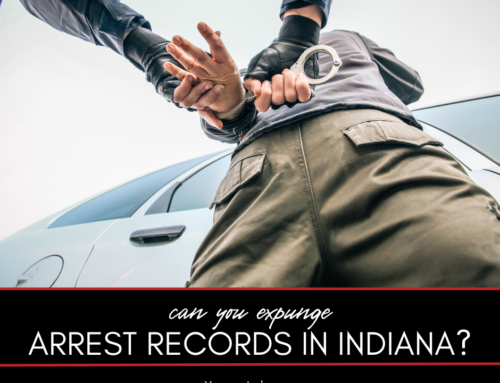
If you have a criminal record in Indiana, the Second Chance Law may be able to help you seal or expunge the record. This guide explains the requirements (and benefits) of the law so you get a clear picture of whether you can clear your criminal record and get the fresh start you deserve.
What is Indiana’s Second Chance Law?
The Second Chance Law is a set of laws that allow people with certain types of criminal records to have their records sealed or expunged.
In order to qualify for sealing or expunging under the Second Chance Law, you must:
- Have been convicted of a misdemeanor or felony that is eligible for sealing or expunging
- Have completed your sentence, including any probation or parole
- Wait the required amount of time after completing your sentence before you can file a petition to seal or expunge your record
If you meet these requirements, you can file a petition to have your record sealed or expunged.
Additionally, you may expunge arrest records that never resulted in charges, or charges that never resulted in a conviction (such as those that were dropped or that resulted in a not guilty verdict).
What Are the Benefits of Expunging Your Indiana Criminal Record Under the Second Chance Law?
The benefits of having your criminal record expunged are numerous. Perhaps most importantly, an expunged criminal record is not generally accessible to the public. This means that potential employers, landlords and others will not be able to see your criminal history when they conduct background checks.
An expunged record can also give you a much-needed fresh start. If you’ve been struggling to find a job or housing because of your criminal record, expunging your record can open up new opportunities.
Related: Expungement FAQ for Indiana residents
Second Chance Law Expungement Requirements
The Second Chance Law requires different things from different people; those who want to expunge arrest records must meet different requirements than those who want to expunge serious felonies, which the following sections explain.
Indiana Expungement Requirements for Arrest Records That Never Led to a Conviction
If you were arrested but never convicted, you may be eligible to have your arrest record expunged. To do this, you must:
- Wait at least a year from the date of your arrest before petitioning for expungement
- Not currently be charged with a crime
- Not have been found guilty of any crime in the past five years
- Not currently be on probation for any crime
If you meet these requirements, you can file a petition to have your arrest record expunged.
Indiana Expungement Requirements for Class D or Level 6 Felonies Reduced to Misdemeanors
If you were convicted of a Class D or Level 6 felony that was later reduced to a misdemeanor, you may be eligible to have your felony record expunged. To do this, you must:
- Wait at least five years from the date of your conviction before petitioning for expungement
- Not have been convicted of any crime in the past five years
- Not currently be on probation for any crime
Additionally, the crime must not have been violent or considered a sex offense, and you must not have been convicted of two (or more) separate felonies that involved the use or threat of a deadly weapon.
If you meet these requirements, you can file a petition to have your felony record expunged.
Related: Can you expunge pretrial diversion records in Indiana?
Indiana Expungement Requirements for Class D or Level 6 Felonies Not Reduced to Misdemeanors
If you were convicted of a Class D or Level 6 felony but it was not later reduced to a misdemeanor, you may still be eligible to have your record expunged. To do this, you must:
- Wait at least eight years from the date of your conviction before petitioning for expungement
- Not have been convicted of any crime in the past eight years
- Not currently be on probation for any crime
In some cases, you must wait ten years to expunge your record, such as when you were serving as an elected official (or you were a candidate for public office), or if the state convicted you of a felony that resulted in serious bodily injury to another person.
Related: Expunging a Level 6 felony in Indiana
Can You Expunge Multiple Records in Indiana Under the Second Chance Law?
You can expunge multiple records in Indiana, but you must file separate petitions in each locality where you have a criminal record – and you must file them all within 365 days of each other. You don’t get to space things out by filing in one locality this year and in another locality next year; this is the “one shot” rule that’s part of the Indiana Second Chance law. You only get one chance to expunge your record, and if the state later convicts you of any crimes, they must remain on your criminal record forever (unless the legislature passes a Third Chance Law or something similar in the future).
Do You Need to Talk to an Indiana Expungement and Sealing Attorney?
If you’re ready for a fresh start, we may be able to help. Call us at 317-647-5476 or fill out the form below for a free consultation on expungement. We’re here to answer your questions and get you the fresh start you deserve.













